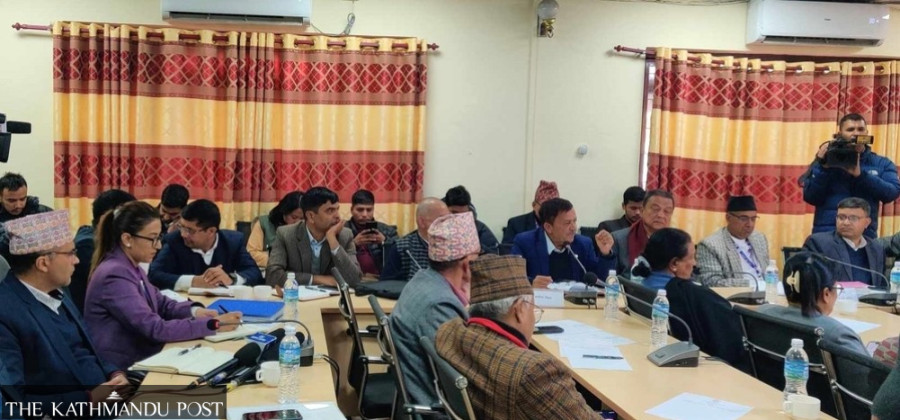National
Experts recommend ‘cooling-off period’ for retired bureaucrats seeking constitutional positions
The suggestion was made during deliberations on ‘Federal Civil Service Bill,’ currently under review in House committee.
Jay Singh Mahara
Experts have recommended introducing a mandatory “cooling-off period” for retired civil servants before they can assume constitutional positions or other government roles. The suggestion was made during deliberations on the Federal Civil Service Bill, currently under review in the State Affairs and Good Governance Committee of the House of Representatives.
Former chief secretary Bimal Koirala argued for the inclusion of a cooling-off period in the bill, stating that the lack of such provisions has turned constitutional commissions into ‘resting places’ for retired bureaucrats.
“Why can’t we find qualified individuals from universities or other sectors for these positions?” he questioned during Tuesday’s meeting.
Former chairperson of the Public Service Commission, Umesh Mainali, also seconded Koirala, suggesting a three-year cooling-off period. He highlighted the importance of ensuring that such appointments do not compromise the integrity of the civil service.
Koirala further emphasised the need for parliamentarians to remain unaffected by interest groups and pressure tactics while drafting civil service legislation. “If we succumb to external influences while formulating civil service laws, how can we claim to be building a nation?” he said.
The experts also criticised the proposed bill for being a mere replication of older laws, failing to reflect the spirit of federalism. Koirala pointed out that the centralised mindset is still dominant, with little effort to decentralise authority in line with the federal structure.
Former Constituent Assembly member and administrator Janakraj Joshi suggested that civil service laws should prioritise public accountability and competence. He advocated for transparency in bureaucrats’ assets and proposed stricter measures against those holding green cards or permanent residency in a foreign country.
Mainali criticised the draft bill for focusing more on employee benefits than on improving service delivery. “The bill should have emphasised public accountability and effective coordination between the administration and leadership,” he said, suggesting the inclusion of a dedicated chapter on responsibilities.
Mainali termed the clause allowing the federal government to assign provincial secretaries a regressive provision and argued that such decisions undermine federal principles. He called for amendments to ensure provinces retain autonomy in appointing their secretaries.
Experts also emphasised the need for predictable transfer and promotion policies, suggesting that the authority to manage such processes be delegated to the Public Service Commission. They further proposed maintaining the retirement age at 60 and setting entry age limits at 35 for men and 40 for women.




 10.12°C Kathmandu
10.12°C Kathmandu














